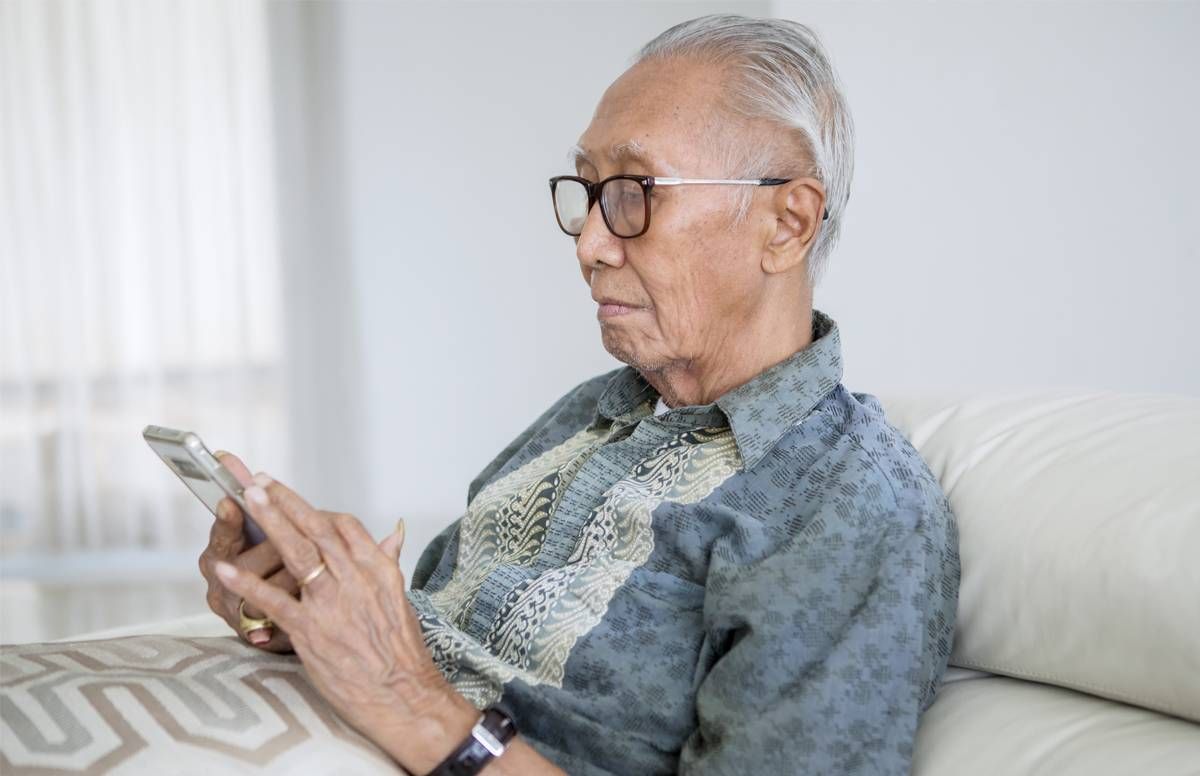What Families Can Expect From In-Home Medical Care While Sheltering In Place
Questions to ask to explore seeing a health care provider in your home

(Editor’s note: This content is sponsored by Landmark Health.)
Not all medical needs require a trip to the doctor’s office or hospital. During this time of social distancing, knowing your options is especially important. Questions to explore within your health care network – by calling your primary care provider, pharmacist, health plan and others – may be:
- Do you have a nurse line you can call to address your questions?
- Can your pharmacy mail your medications?
- Is your doctor doing telemedicine by phone or video?
- Does your community have a local medical group making house calls?
While some of your medical needs may be addressed by phone or a video, there may be times when you need to see a doctor in person. Fear of contracting the coronavirus may rightfully make you hesitant to leave your home. However, if you’re living with COPD, for example, you may need breathing treatments or steroid medications. Even a minor accident while preparing dinner may require stitches. These medical needs require in-person treatments, and home-based medical services can address these scenarios without the need to leave the comfort and safety of home.
In-home Medical Care
Few health providers can get into patients’ homes right now, so it’s best to check with your doctor directly about what’s possible. There are dedicated house-call medical groups, such as Landmark, in communities across the U.S. working to treat patients in their homes.
Dr. Jeremy Berman, regional medical director for Landmark in Seattle, Wash., says, “Many patients are concerned about care coming into the home, because they fear contracting the coronavirus. Since our providers wear full personal protective equipment (PPE) with every home visit, the risk to the patient is low. People should feel comfortable asking their provider what steps they are taking to protect patients from exposure to the virus.”
Dr. Perry Walton, a physician working for Landmark in the New Orleans area, adds, “We work to determine if a provider being in the home can keep the patient out of the hospital. That’s the goal with bringing care home – keeping patients safe and at home.”
Common Concerns Beyond Coronavirus
In addition to virus-related concerns, many Americans are experiencing stress, anxiety and a loss of community resources they depend on for food, socialization and well-being.
“Many patients are struggling with finances. Before the pandemic, patients could get affordable meals in their communities. One of my patients was nervous about his fixed income. Just weeks ago, he could get a prepared lunch for one dollar at a nearby synagogue, but now that kitchen has closed, he spends four dollars on a can of soup,” says Dr. Kiranjit Kaur, an internist and geriatrician working for Landmark in New York City.

Berman agrees, adding, “Many of our patients in the Seattle area are also experiencing the discontinuation of community-based services such as home health, caregiver support and meal delivery.”
“We have also seen an increase in behavioral health needs, especially for those with depression and anxiety. Being isolated at home can make those conditions worse,” says Walton.
There is hope, and it often comes in the form of social work resources and behavioral health connections, both of which can be addressed by telemedicine. Call your provider or your health plan if you need to access resources to help get a meal or if you are experiencing additional anxiety. Be direct and honest with your needs. By phone, the provider can’t see your emotions or facial expressions, so it’s critical that you open up with your words.
Important Decisions Older Adults and Their Families Should Discuss
“For older adults, physically distancing from family and friends living outside of their home is critically important,” says Berman. “Families who were unable to move an older loved one out of a senior living environment and into the home of a family member at the start of the pandemic, should talk to the care facility to understand the prevention measures keeping residents safe and healthy.”
“In addition, talk about goals of care at the end of life,” says Berman. “If you or your loved ones don’t have an advance care plan, now is the time to do that.”
These conversations can be uncomfortable, but they can help you understand what matters most to your loved ones, how they define quality of life, their future hopes, goals, fears, and who can advocate for them when they are unable.
Know Your Options for Care
Reach out to your health care network – your primary care provider, your pharmacist, your health plan – to understand what your options are for care that comes to you, so you can be prepared and protect yourself from leaving your home if possible.

Since 2014, Landmark Health and its affiliated medical groups (Landmark) have delivered comprehensive in-home medical care to older adults, 24/7 – 365 days a year. Specialized in complex chronic care, Landmark's physician-led multidisciplinary teams work with patients' existing health care networks to bring medical, behavioral, and palliative care, along with social services, to individuals where they reside. As one of the nation's largest value-based health care companies, more than 100,000 people across 14 states and 46 metropolitan communities can access Landmark's care at no cost. Most critically, Landmark is bending the cost curve in health care by reducing avoidable ER visits and hospital admissions while extending lives of patients. www.landmarkhealth.org

